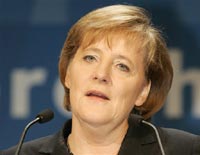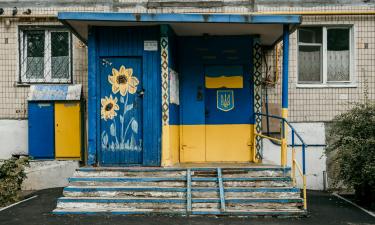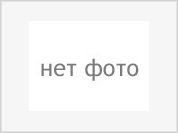German Chancellor backs stronger sanctions against Iran
German Chancellor Angela Merkel backed the possibility of stronger sanctions against Iran before she met Monday with Russian President Vladimir Putin, who planned to travel on to Tehran from Germany.

Merkel received Putin with military honors against the backdrop of Wiesbaden's opulent 19th century Kurhaus before they headed into talks. She had met Putin already over dinner Sunday night, and the pair were to address an annual German-Russia forum later Monday.
The U.S. push for stronger sanctions against Iran over its disputed nuclear program has emerged as the theme likely to dominate the talks. Putin is to visit Tehran after Monday's meeting with Merkel.
In an interview published Monday, Merkel stressed that diplomacy is the way to solve the standoff with Tehran, but also stressed that further action would need to be taken if Iran refuses to budge.
"We cannot close our eyes to the dangers," Merkel told the German daily Die Welt. "I believe that we need to solve the problem through diplomacy, but at the same time we must be prepared to enact further sanctions if Iran does not come around."
Putin arrived late on Sunday, delayed by wet, snowy weather in Moscow.
Before the meeting, Merkel stressed in her weekly video message "the necessity of new sanctions" against Iran - a source of potential friction with Russia, which is skeptical about efforts in the U.N. Security Council to impose a third set of sanctions against Tehran for its refusal to halt its uranium enrichment program.
Any Russian show of support for Iran, such as a pledge by Putin to quickly complete the power plant, could embolden Iran and further cloud Moscow's relations with the West.
Putin bluntly spelled out his disagreements with Washington, saying last week that he saw no "objective data" to prove Western claims that Iran is seeking nuclear weapons. And at talks Friday with U.S. Secretary of State Condoleezza Rice and U.S. Defense Secretary Robert Gates, he ridiculed U.S. plans for a missile defense system in eastern Europe, supposedly to stop an Iranian attack.
Putin's visit to Tehran will be scrutinized for clues to Russia's future course. Moscow has helped Iran avoid tougher sanctions and is building the country's first nuclear reactor. But Russia has hedged its position by delaying completion of the plant, and urging Iran to comply with international controls on its nuclear program.
Six countries - the U.S., Britain, France, Germany, Russia and China - have successfully won two limited rounds of sanctions against Tehran for refusing to stop its effort to make enriched uranium, but efforts toward a tougher round have dragged out amid Chinese and Russian skepticism. Iran says its nuclear program is peaceful; the U.S. maintains that the uranium enrichment program is part of an effort to build nuclear weapons.
In Moscow, a Kremlin spokeswoman said Putin had been told of a plot to assassinate him during his visit to Iran this week. The spokeswoman, who spoke Sunday on customary condition of anonymity, refused further comment.
Interfax news agency, citing a source in Russia's security services, said suicide terrorists had been trained to carry out the assassination. A spokesman for Iran's Foreign Ministry, Mohammad Ali Hosseini, denied any such plot had been uncovered, and he characterized the news as disinformation spread by adversaries hoping to spoil Russian-Iranian relations.
Putin and Merkel, whose country at the time held the European Union presidency, earlier this year held a Russia-EU summit that ended on a sour note after Russian authorities prevented opposition leader Garry Kasparov from traveling to Samara, Russia, for a protest rally near the summit site.
Putin said Russia and Europe were partners "like it or not."
Subscribe to Pravda.Ru Telegram channel, Facebook, RSS!





